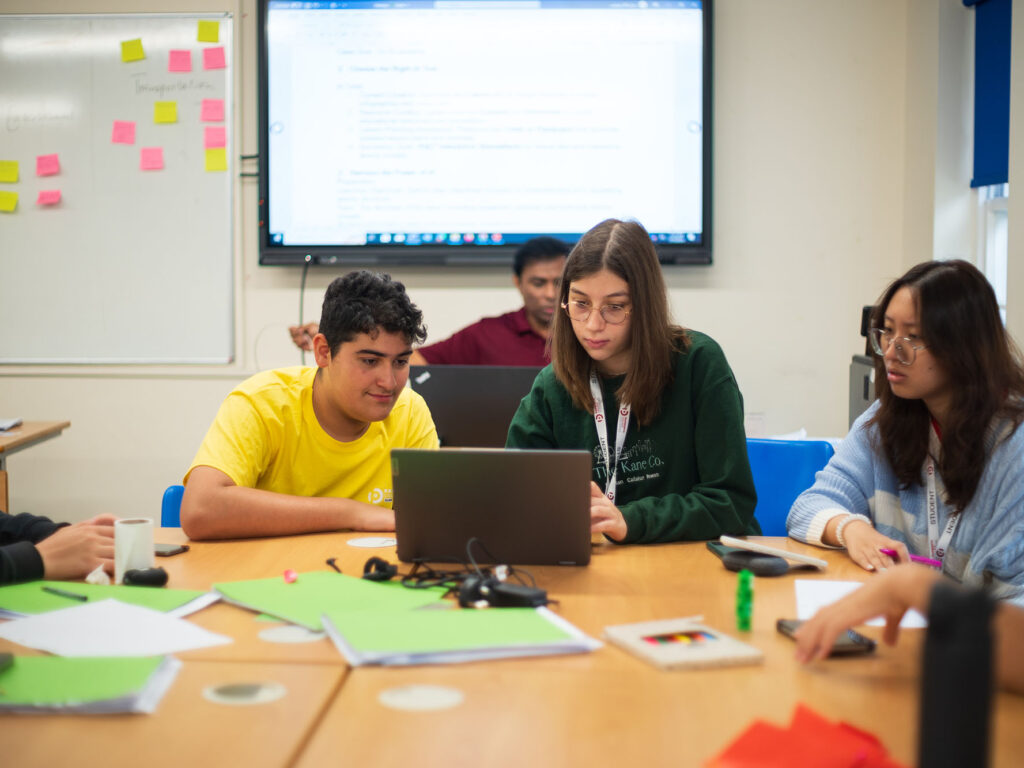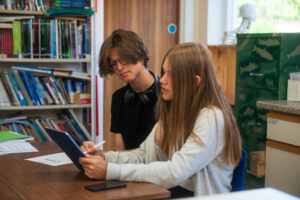Why Project-Based Learning Ensures a Fun, Engaging Academic Experience at Padworth Summer School
Teenagers are naturally curious and adventurous. At Padworth Summer School, we recognise that traditional classroom settings, with their focus on grades and tests, might not always ignite that spark of curiosity. That’s where our project-based learning approach comes into play.
What is Project-Based Learning?
Project-Based Learning (PBL) is an instructional methodology that encourages students to learn and apply knowledge and skills through engaging projects set around challenges and problems they may face in the real world. Instead of passively receiving information, students actively explore real-world problems and challenges, acquiring deeper knowledge.
Why is Project-Based Learning Effective?
Project-Based Learning promotes active learning and fosters a deeper understanding of the subject matter. It allows students to take ownership of their learning, enhances critical thinking and problem-solving skills, and encourages creativity and innovation. By working on projects, students learn how to work collaboratively, manage time and resources, and communicate effectively.
Embracing Hands-On Learning
Project-Based Learning offers students the opportunity to dive into projects and experiments on a regular basis. This hands-on approach is more than just a break from the norm; it’s a dynamic way to apply theoretical knowledge to real-world situations. It encourages students to think critically, solve problems, and innovate.
Fostering Collaboration and Teamwork
One of the key aspects of our summer programme is group work. Students collaborate on projects, sharing ideas, brainstorming solutions, and working together to overcome challenges. This not only helps them learn to work effectively in teams but also builds their communication and interpersonal skills.
Engaging in Relevant Challenges
Our students conduct five challenges throughout a two-week cycle related to relevant topics such as Artificial Intelligence, Climate Crisis, Global Citizenship, Innovation, and Entrepreneurship. These challenges, each six hours long, are entirely project-based and hands-on. Students work in small groups to brainstorm, design, prototype, build, test, and present their ideas, ensuring constant engagement and excitement.
Concluding with a Company-Sponsored Hackathon
The final challenge is a company-sponsored hackathon, where students in multidisciplinary groups create innovative solutions to real-world industry problems. This experience provides real-world context and prepares them for future academic and professional endeavours.
For the first four challenges, students work within their chosen Business, English, or STEM pathways. In the final challenge, they mix into multidisciplinary, multinational groups to tackle the hackathon problem from various perspectives – social, economic, and environmental.
Encouraging Problem-Solving and Critical Thinking
Project-Based Learning requires students to engage in problem-solving and critical thinking. They are constantly challenged to think deeply and creatively, developing resilience and adaptability – skills invaluable in and out of the classroom.
Promoting Presentations and Public Speaking
Our summer programme emphasises presenting ideas, allowing students to showcase their projects, honing their public speaking and presentation skills, boosting their confidence, and preparing them for future success.
Nurturing Curiosity and Adventure
At the heart of our approach is the belief that students are explorers. By veering away from the traditional classroom environment, we provide them with the freedom to explore, experiment, and discover, fuelling their passion for learning and keeping their summer school journey exciting and engaging.
The project-based learning approach at Padworth Summer School ensures that students’ academic experiences are not just educational but also fun and engaging. By providing opportunities for hands-on projects, collaborative work, problem-solving, brainstorming, and presenting, we create an environment where students can thrive and truly enjoy learning. Because learning should be an adventure, and we ensure every student at Padworth Summer School gets to be an explorer.








